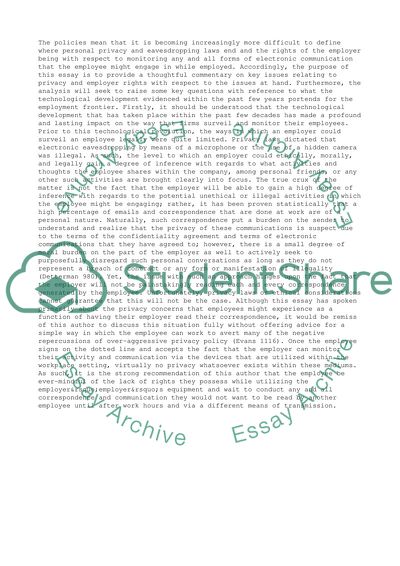Cite this document
(“Employee privacy on computers in the workplace Research Paper”, n.d.)
Employee privacy on computers in the workplace Research Paper. Retrieved from https://studentshare.org/business/1463392-employee-privacy-on-computers-in-the-workplace
Employee privacy on computers in the workplace Research Paper. Retrieved from https://studentshare.org/business/1463392-employee-privacy-on-computers-in-the-workplace
(Employee Privacy on Computers in the Workplace Research Paper)
Employee Privacy on Computers in the Workplace Research Paper. https://studentshare.org/business/1463392-employee-privacy-on-computers-in-the-workplace.
Employee Privacy on Computers in the Workplace Research Paper. https://studentshare.org/business/1463392-employee-privacy-on-computers-in-the-workplace.
“Employee Privacy on Computers in the Workplace Research Paper”, n.d. https://studentshare.org/business/1463392-employee-privacy-on-computers-in-the-workplace.


